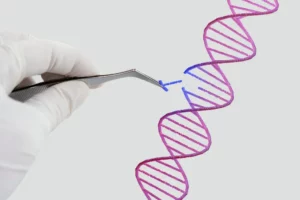 Mitochondrial genetic disorders are a group of rare and complex conditions that affect the mitochondria, the energy-producing structures within cells.
Mitochondrial genetic disorders are a group of rare and complex conditions that affect the mitochondria, the energy-producing structures within cells.
Unlike most of our DNA, which is located in the cell nucleus, mitochondrial DNA (mtDNA) is found in the mitochondria themselves.
Today, we will explore mitochondrial genetic disorders and their unique characteristics.
Understanding Mitochondrial Disorders
Mitochondria play a crucial role in generating energy for cells, and when they malfunction due to genetic mutations, it can lead to various health problems. Mitochondrial genetic disorders are typically inherited from the mother, as the mitochondria in sperm are usually destroyed during fertilization.
Variability and Heterogeneity
One of the defining features of mitochondrial disorders is their variability. Symptoms can range from mild to severe, and the age of onset can vary widely. This heterogeneity makes diagnosis and treatment challenging.
Common Mitochondrial Disorders
Leigh Syndrome
This syndrome is a severe mitochondrial disorder that primarily affects the central nervous system. Symptoms often start in infancy and include developmental delays, muscle weakness, and movement problems.
Mitochondrial Myopathy
This group of disorders affects the muscles and can lead to muscle weakness, exercise intolerance, and sometimes respiratory issues.
Mitochondrial Encephalopathy
These disorders primarily affect the brain, causing symptoms such as seizures, cognitive decline, and developmental regression.
Leber’s Hereditary Optic Neuropathy (LHON)
LHON primarily affects the eyes, leading to vision loss. It often begins in young adulthood and predominantly affects males.
Challenges in Diagnosis and Treatment
Mitochondrial disorders can be challenging to diagnose because of their variable symptoms and the fact that they can mimic other conditions. Diagnosis typically involves a combination of clinical evaluation, genetic testing, and sometimes muscle biopsies.
Treatment options for mitochondrial disorders are limited. While some therapies aim to manage symptoms or support energy production, there is no cure for these conditions. Research into potential treatments, such as gene therapy and mitochondrial replacement therapy, is ongoing.
Genetic Counseling and Family Planning
Families with a history of mitochondrial disorders may seek genetic counseling to understand the risks of passing the condition to their offspring.
In some cases, techniques like mitochondrial replacement therapy may be considered to prevent the transmission of mtDNA mutations.
Picture Credit: Freepik
